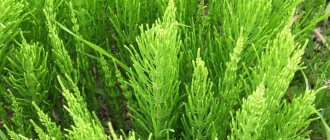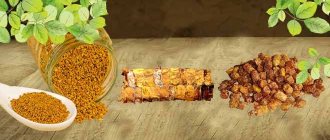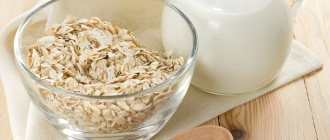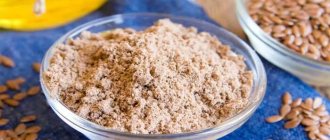Senna tea is a well-known natural laxative. But it is useful not only for constipation. It is often prescribed for various problems with the colon and even for weight loss. Today we will try to figure out how healthy this tea is? And is it even worth drinking? Perhaps some methods of its use will not be so harmless to the body.
Given its powerful effects on the gut, it is important to learn as much as possible about tea. This is the only way its use will benefit you, and not vice versa. This is especially true when you drink senna tea for medicinal purposes.
But first, let's figure out what kind of plant this is?
What is senna?
From the Latin, Cassia angustifolia or Senna alexandrina is known by many names. For example, Egyptian senna, cassia senna, Bombay senna, Indian senna, etc.
The plant is native to North Africa, the Middle East and parts of Asia. So in Asia it primarily grows in the temperate regions of India and China.
The herb received the names "Alexandrian senna" and "Egyptian senna" due to its origin. In the past, Alexandria in Egypt was the main trading port. Fruits and leaves were transported from Nubia, Sudan and other places to Alexandria. Then from it, through the Mediterranean Sea, senna came to Europe and neighboring parts of Asia.
There are a huge number of varieties of hay known: more than 250 species. But only the two most famous varieties are cultivated for export: cassia accutifolia and cassia angustifolia.
In fact, senna is a small bush, no higher than 60 cm with yellowish-green or pale olive leaves. These same leaves and seeds are collected by hand and dried. But then the famous senna tea is brewed from them.
Small yellow delicate flowers emit virtually no fragrance. However, they are used differently. Most often they are used to make beautiful jewelry and wedding bouquets.
Historical Uses of Sena Tea
The therapeutic properties of senna were first used by Arab doctors in the 9th century AD. e. Then the plant got its name from the Arabic “senna” and from the Hebrew word “cassia”. Translated, it means “thrown back,” which indicates peeling bark.
For a long time, the plant was used in traditional Arabic as well as European medicine. The leaves were brewed as tea and decoction. They were used to treat fever, indigestion, infection, dysentery, bronchitis, seizures and skin diseases.
Senna tea has been used in Ayurvedic medicine for diseases of the liver, skin and respiratory tract. Egyptian doctors treated their royal patients and elite for constipation. During the Renaissance, senna tea became widely used throughout the world as a laxative.
But, as with any medicinal tea, there were some contraindications. It was often difficult to control the concentration of active ingredients in tea. This treatment often resulted in unpredictable effects.
Thus, standardized commercial dosage forms were developed. These concentrates are now available in the form of liquids, powders and tablets. They are sold without a prescription as regular over-the-counter laxatives.
So, we figured out that first of all it was a popular laxative tea. But its application does not end there. Let's figure out in what cases it is recommended to drink it?
Composition and medicinal properties of the herb
The plant contains:
- glycosides;
- flavonoids;
- organic acids;
- vegetable resins;
- plant alkaloids;
- anthraquinones (they are the ones that have a laxative effect).
Biologically active substances provide the following pharmacological effects:
- pronounced laxative;
- moderate diuretic;
- secretory;
- appetite stimulant;
- anti-inflammatory.
What are the benefits of senna tea for the body?
Generally speaking, all herbs are beneficial to one degree or another. Every plant contains certain compounds that affect our body.
Exposure to radiation, environmental pollutants and harsh chemicals negatively impacts our health. As a result, both the skin and internal organs suffer.
But the bottom line is that herbs are an effective and inexpensive way to maintain your health. Below we will look at how senna tea affects the body.
1) Treatment of constipation
If you often experience constipation, then you know exactly how painful this condition is. Senna tea is a strong laxative. It is drunk when quick relief from constipation is needed.
Senna tea owes its laxative effect not only to anthraquinone derivatives. The drink also stimulates the muscles of the colon.
Remember, constipation can be a result of dehydration and low fiber intake. Even stress and emotional tension can cause it.
Therefore, start taking senna tea in the lowest possible dose. Since too much of it can naturally cause unpleasant consequences. Be patient and wait at least 6 to 12 hours. Usually, it is during this period of time that senna tea begins to act.
Although this herb is an effective method for treating acute constipation, do not overindulge in it. Try to improve your diet. Eat more fiber and drink plenty of water. Exercise helps if your gut problems are caused by stress.
2) Senna tea for weight loss
Some herbal mixtures for weight loss contain senna. Of course, this is a natural herbal laxative. And naturally, it may offer you the temporary weight loss solution you are looking for. But be aware that it can cause serious health problems after taking it for more than 7 days.
This cleansing tea really reduces your appetite. In addition, it speeds up the movement of food through the intestines. This means that not all calories have time to be absorbed by the body.
Will senna tea help you lose weight? Yes, you can lose weight, but through a rather unhealthy process.
You should know that in order to burn fat, two conditions must be met. Limit your calorie intake and exercise!
Any drinks and teas for weight loss make a very small contribution to the weight loss process. And you go the other way! Eat healthy. Choose drinks and teas that boost your metabolism.
Green tea and oolong tea are highly recommended. They are much safer and have a long-lasting effect.
But senna infusion is perfect for initial cleansing of the body. It will rid your body of toxins and harmful waste. But then be sure to switch to other teas and drinks.
Remember that senna tea is not suitable for daily nutrition. So he will only harm you.
3) Improves digestion
Senna tea is known to be effective in relieving heartburn, nausea, gas, bloating and belching. The herb is often brewed together with other aromatic herbs.
For example, with cardamom, fennel, ginger and peppermint. They further help reduce the accumulation of gases in the stomach.
4) Skin infections and other diseases
The antibacterial properties of senna treat many dermatological skin diseases. Both senna tea and the paste from the leaves of the plant are used equally. But only use them externally on problem areas.
For example, the paste is applied to acne and other inflammatory conditions such as eczema. Acetone and ethanol present in senna fight acne-causing microorganisms.
5) Helps with hemorrhoids
Senna tea is known to help heal minor cracks and tears from hemorrhoids. It reduces swelling and promotes rapid healing.
In addition, it facilitates defecation in such pathological conditions. This is due to the fact that the substances contained in senna are absorbed in the intestinal tract. They lead to the separation of non-sugar parts in the colon.
These non-sugar components increase peristaltic movements, irritating and stimulating the intestinal tract. This speeds up the passage of stool through the intestinal tract.
6) Excellent colon cleanser
Senna tea is considered a “cleansing herb” due to its laxative effects. The leaves of the plant are even used in traditional Chinese medicine.
For centuries, it has been believed that senna helps the body get rid of stagnant food accumulated in the stomach. Therefore, today the herb is a popular remedy for colon cleansing before colonoscopies and other types of surgery.
7) External use of herbal decoction
Senna is an extremely beneficial herb for hair. It not only strengthens them, but also makes them smooth and shiny.
Typically, a mask is prepared by mixing senna powder with water and yogurt. Sometimes other ingredients are added, such as citrus juice, essential oils, herbal teas and spices.
This mask is applied to all hair. It is especially good when rubbed into the scalp. Then cover the head with a plastic bag, insulate it and wash it off after a few hours.
For severe loss, sena is mixed with other herbs such as amla and shikakai.
Price

The cost of a natural product is minimal.
With treatment durations ranging from two to six weeks, acceptable cost is often the main criterion when purchasing a laxative.
Average price in Russia
In pharmacies in different regions, laxatives have a low cost:
- dry raw materials , weight 50 g, price - from 30 to 60 rubles;
- filter bags , weight 1.5 g, packaging holds 20–24 pieces, price – from 30 to 65 rubles.
Average cost in Ukraine
Pharmacy chains offer products from various pharmaceutical companies. Regardless of the manufacturer, the cost is available to any patient:
- senna leaf , cardboard pack, weight 100 g - from 8 to 14 hryvnia;
- filter bags , weight 2 g, quantity - 20 pieces, price from 10 to 12 hryvnia.
How else has senna tea been used?
Modern medicine has used extracts of the plant since at least the 1950s. First of all, these were high-quality laxatives. Loose tea was used in the same way. In addition, senna tea was an expectorant, carminative and anti-dysenteric. It was also drunk for jaundice, anemia and malaria.
A paste made from the leaves was used to treat many skin diseases. It significantly improved acne. First of all, due to its antibacterial effect.
Senna tea has also been drunk for intestinal worms and parasites.
Precautionary measures
Although this tea helps relieve painful constipation, it is not so harmless.
Remember! It should not be drunk for a long time. After all, abuse leads to weakening of the intestines, unwanted dependence and discoloration of urine.
Even herbal laxatives are powerful. Therefore, please take into account the instructions below!
Elderly people should consult a doctor before taking it.

Senna tea reduces potassium levels in the body. Because of this, it cannot be combined with diuretics with a similar effect. Low potassium levels, also known as electrolyte imbalance. It leads to changes in heart rate and physical weakness.
Senna tinctures may interact with medications such as calcium channel blockers. In addition, they can enhance the effects of other herbs, causing allergic reactions.
Its rapid action is known to prevent the absorption of nutrients through the colon. Thus, the drink can deprive you of important minerals and vitamins.
Special Recommendations
Throughout the entire course of treatment with drugs containing senna, it is recommended to drink large amounts of liquid (3-3.5 liters per day) in order to replenish the volumes lost in feces. While using senna preparations, it is also necessary to consume a sufficient amount of fiber.
Indications for stopping the drug and seeking medical help are the absence of stool for 2 days while using senna in any form.
When treating with this drug, you must strictly follow the instructions of your doctor or the instructions for use.
Source
Other useful and medicinal plants

Description of loosestrife, medicinal properties and contraindications

Description of the plant medicinal letter, how to use, contraindications

What kind of plant is this, properties, benefits and harms of bergamot

Gymnema - beneficial properties, contraindications, how to take
Side effects of senna tea
They occur mainly due to excessive consumption.
Accidental ingestion may cause severe skin rash in young children. Long-term use causes abdominal pain, diarrhea, cramps and belching. Less commonly, vomiting and changes in the color of urine accompanied by blood occur. Even the amount of protein in the blood may increase.
Long-term use of this herb leads to discoloration of the colon. The inner lining of the intestines becomes black.
Senna can cause softening of bones and weakening of the skeletal system. As a result, the risk of arthritis increases.
Skin allergies and rashes are common side effects of senna.
Long-term treatment with senna tea causes chronic damage to the liver and kidneys.
Excessive consumption of tea damages the colon and rectum. This desensitizes the digestive process. The drink can cause severe addiction and long-term problems.
It also leads to bone loss, muscle weakness and water retention.
For whom is senna tea contraindicated?
If you are pregnant or breastfeeding, do not drink it. The same applies to the dangerous condition of inflammation of the uterus. Small children should not drink it either.
Senna tea is contraindicated for abdominal hernia, liver disease, kidney disease, cystitis, dehydration and nausea.
It is also dangerous for heart disease, anemia and blood vessel diseases. It is also not recommended to drink it if you have appendicitis or inflammatory bowel diseases. For example, with Crohn's disease, ulcerative colitis and ulcers.
Analogs
Herbal preparations with a laxative effect:
- Agiolax. The drug contains plantain seeds plus senna.
- Senade, Kafiol. The active ingredient is senna.
- Laminaride. The active ingredient is seaweed (kelp).
- Musinum. Natural ingredients – anise plus buckthorn bark.
- Rectative. The basis of the drug is horse chestnut extract.
Many laxatives on the list are contraindicated during pregnancy. Before use, check the restrictions on use, side effects, and consult a gastroenterologist.
How to brew senna tea?
It brews quite normally. But it is necessary to precisely control the dosage. So, for one cup you need 1/2 - 2 g of chopped herbs. This is about a quarter of a teaspoon.
Try not to use ready-made tea bags. Because they may contain too much or too little grass. You need to control the dosage precisely. This is the only way to protect yourself from side effects.
Senna tea is infused for about 10 minutes and then filtered.
Attention! Do not drink more than two cups a day or more than seven days in a row!
Alternative brewing method
You can immerse senna in cold water for 12 hours. They say that this way the drink has less convulsive effect. Basically this process reduces the amount of resin in the tea.
Senna tea has a beautiful amber color, a faint odor and a bitter taste.
To reduce abdominal cramps and pain, mix senna with other soothing herbs. For example, with dill, orange zest, cinnamon, coriander, anise or ginger.
It is best to drink this tea before bed. The cleansing and laxative effect occurs anywhere from 6 to 12 hours. Therefore, you should feel the effect in the morning.
Don't drink the second cup right away, just because there is no immediate effect. It works, but not right away!
If this is your first time trying senna, take a smaller amount. First, see the body's reaction to it.
And don’t forget about all possible side reactions. If they become particularly severe, stop taking the herb immediately. If necessary, seek help from a doctor.
Recommended dosage
A typical senna supplement dosage is 15–30 mg per day for no more than 1 week ().
However, there is no clear dosage recommendation for senna tea.
Determining the exact dose is much more difficult because the concentration of sennosides changes dramatically depending on how long the tea is steeped.
Moreover, many manufacturers of commercial senna teas, especially those containing a mixture of herbs, do not specify the exact amount of senna leaves used.
In this case, the safest approach is to follow the package instructions for preparation and consumption. Never consume more than what is indicated on the label.
Summary:
Although there are no clear dosage recommendations for senna tea, you should not take more than what is recommended on the package.











